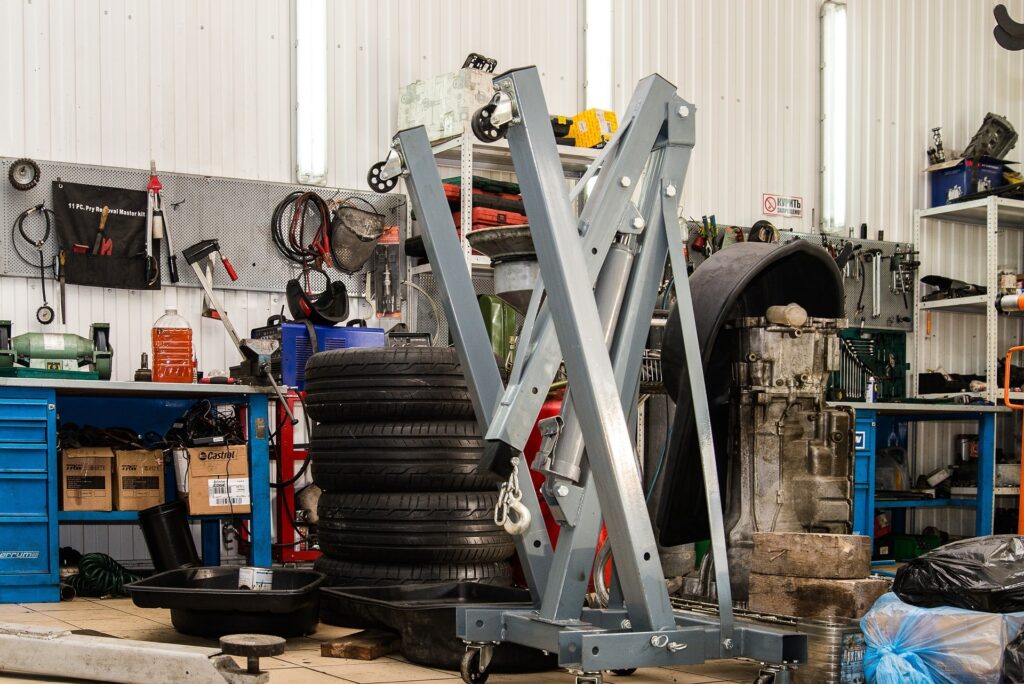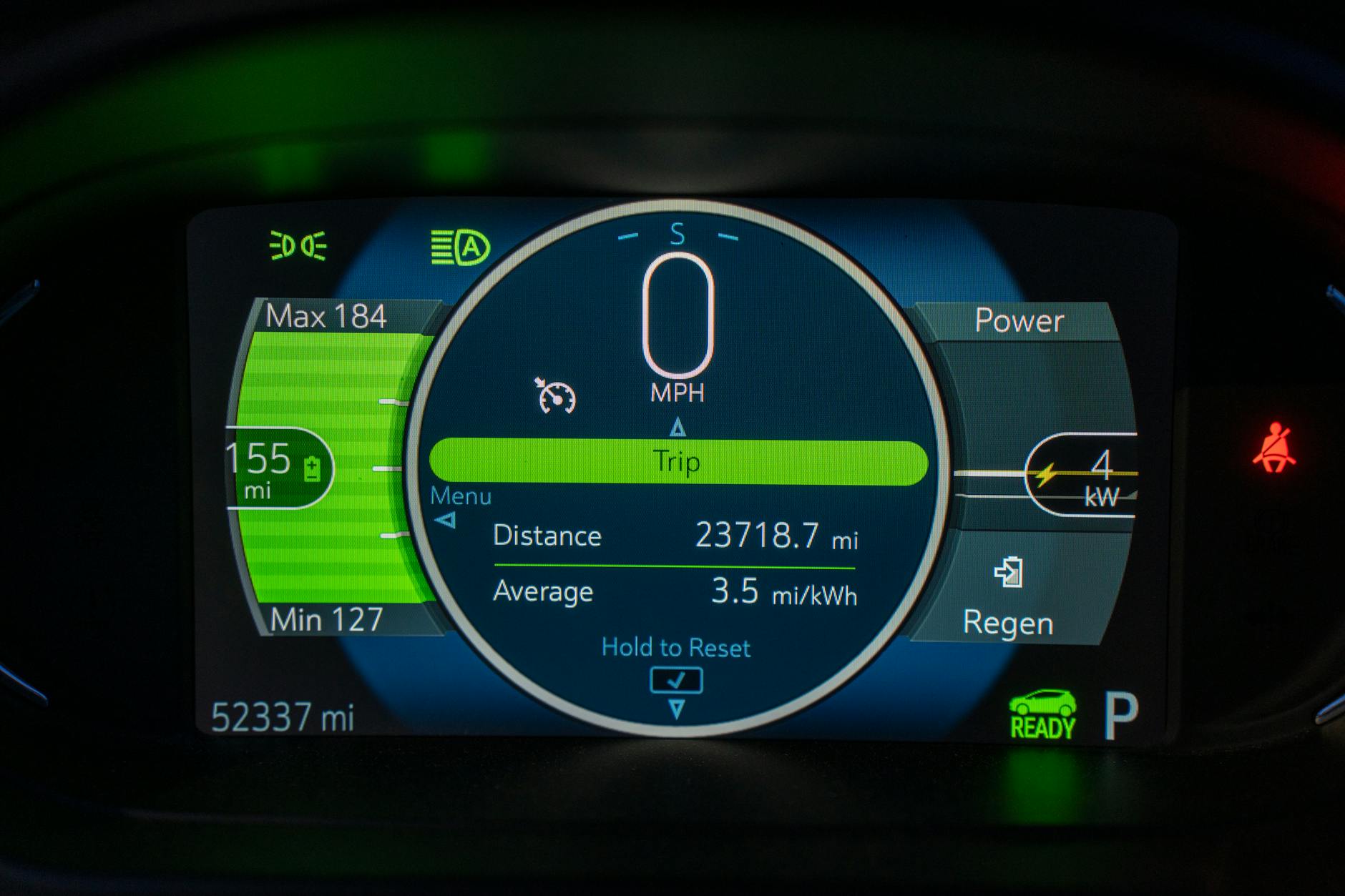
Are you tired of the constant maintenance your gas-powered car requires? 🔧💰 As electric vehicles (EVs) become increasingly popular, many drivers are wondering how their maintenance needs stack up against traditional combustion engines. The difference might surprise you. Ev vs Gas car maintenance
Imagine a world where oil changes, spark plug replacements, and exhaust system repairs are a thing of the past. That’s the reality for EV owners. But does this mean EVs are maintenance-free? Not quite. While electric vehicles do require less frequent servicing, they come with their own unique set of care requirements. From battery health checks to software updates, EV maintenance is entering a new era of automotive care.
In this blog post, we’ll dive deep into the world of EV maintenance, comparing it side-by-side with gas car upkeep. We’ll explore everything from basic maintenance differences and cost comparisons to the environmental impact and the future of car care. Whether you’re considering making the switch to electric or simply curious about the evolving landscape of vehicle maintenance, buckle up for an enlightening journey through the nuts and bolts (or rather, the volts and amps) of modern car care. 🚗⚡
Basic Maintenance Differences – Ev vs Gas car maintenance
A. Fewer Moving Parts in EVs
Electric vehicles (EVs) boast a significantly simpler mechanical structure compared to their gas-powered counterparts. This simplicity translates to fewer components that can wear out or require maintenance.
| Component | Gas Car | Electric Vehicle |
|---|---|---|
| Engine | Complex with 200+ moving parts | Simple electric motor with ~20 moving parts |
| Transmission | Multi-speed gearbox | Single-speed reducer |
| Cooling System | Radiator, coolant, hoses | Battery cooling system |
| Exhaust System | Muffler, catalytic converter, pipes | None |
B. Reduced Fluid Changes for EVs
EVs require minimal fluid maintenance:
- No engine oil changes
- No transmission fluid changes
- Brake fluid checks less frequent due to regenerative braking
The only regular fluid maintenance for EVs is typically:
- Coolant for the battery system
- Windshield washer fluid
C. Battery Care vs. Engine Tune-ups
Instead of engine tune-ups, EV owners focus on battery care:
- Regular software updates
- Monitoring battery health
- Avoiding extreme temperatures
- Maintaining optimal charge levels (20-80%)
D. Brake System Variations
EVs utilize regenerative braking, which:
- Reduces wear on brake pads
- Extends brake system lifespan
- Converts kinetic energy to electricity
- Requires less frequent brake maintenance
However, regular brake fluid checks are still necessary for both EVs and gas cars to ensure safety and longevity of the braking system.
Cost Comparison
A. Initial Maintenance Expenses
When comparing the initial maintenance expenses of electric vehicles (EVs) and gas cars, it’s important to consider the differences in their components and systems. Here’s a breakdown of the initial maintenance costs:
| Maintenance Item | Electric Vehicle | Gas Car |
|---|---|---|
| Oil Changes | Not required | $30-$75 every 3,000-7,500 miles |
| Brake Pads | Less frequent due to regenerative braking | More frequent replacement |
| Air Filters | Only cabin air filter needed | Engine and cabin air filters required |
| Spark Plugs | Not applicable | $50-$250 every 30,000-100,000 miles |
| Coolant System | Simpler system, less maintenance | More complex, requires regular checks |
Initially, gas cars may seem less expensive to maintain due to familiarity and widely available parts. However, EVs have fewer moving parts and simpler systems, leading to reduced initial maintenance needs.
B. Long-term Savings with EVs
Over time, EV owners typically experience significant savings on maintenance costs:
- Fewer replaceable parts
- Reduced wear and tear on brakes
- No need for oil changes or transmission fluid replacements
- Simpler cooling systems
These factors contribute to lower long-term maintenance expenses for EVs compared to gas cars.
C. Energy Costs: Electricity vs. Gasoline
The cost of “fueling” EVs versus gas cars is a crucial factor in overall maintenance expenses:
- Electricity costs are generally lower and more stable than gasoline prices
- Charging at home during off-peak hours can further reduce energy costs
- Public charging stations may offer free or discounted rates
While gas prices fluctuate, electricity costs tend to be more predictable, allowing EV owners to budget more effectively for their energy needs.
Frequency of Service Visits – EV vs Gas car maintenance

EV’s Extended Service Intervals
Electric vehicles (EVs) boast significantly longer service intervals compared to their gas-powered counterparts. This is primarily due to their simpler mechanical design and fewer moving parts. On average, EVs require maintenance checks every 12,000 to 15,000 miles, or once a year, whichever comes first.
| Maintenance Item | EV Interval | Gas Car Interval |
|---|---|---|
| Oil Change | Not required | Every 3,000-7,500 miles |
| Brake Service | 100,000+ miles | Every 50,000-70,000 miles |
| Transmission Fluid | Not required | Every 30,000-60,000 miles |
Regular Check-ups for Gas Cars
Traditional gas-powered vehicles demand more frequent attention:
- Oil changes every 3,000-7,500 miles
- Tire rotations every 5,000-8,000 miles
- Air filter replacements every 15,000-30,000 miles
- Spark plug changes every 30,000-100,000 miles
These regular check-ups are crucial for maintaining optimal performance and preventing costly repairs down the line.
Software Updates for EVs
A unique aspect of EV maintenance is the importance of software updates. Unlike gas cars, EVs often receive over-the-air (OTA) updates that can:
- Improve battery efficiency
- Enhance driving range
- Add new features
- Fix bugs and improve user interface
These updates typically don’t require a visit to the service center, further reducing the frequency of physical maintenance visits for EV owners.
Now that we’ve explored the frequency of service visits, let’s delve into the specialized skills and tools required for maintaining these different types of vehicles.
Specialized Skills and Tools – Ev vs Gas car maintenance
EV Technician Expertise
Electric vehicle (EV) technicians require specialized knowledge and skills that differ significantly from traditional mechanics. They must understand complex electrical systems, high-voltage battery management, and advanced driver assistance systems (ADAS). EV technicians need expertise in:
- Battery diagnostics and maintenance
- Electric motor repair and replacement
- Inverter and power electronics troubleshooting
- Regenerative braking systems
- Thermal management systems
Diagnostic Equipment for EVs
EVs require unique diagnostic tools and equipment for maintenance and repair. Some essential tools include:
| Tool | Purpose |
|---|---|
| High-voltage multimeter | Safely measure electrical systems |
| Battery analyzer | Assess battery health and performance |
| Insulation resistance tester | Check for electrical leaks |
| Thermal imaging camera | Detect heat-related issues |
| OBD-II scanner with EV-specific software | Read and interpret EV-specific diagnostic codes |
Traditional Mechanic Skills for Gas Cars – Ev vs Gas car maintenance
While gas car mechanics still need a broad skill set, their focus is primarily on:
- Internal combustion engine repair
- Transmission and drivetrain maintenance
- Fuel system diagnostics
- Exhaust system repair
- Brake and suspension work
Traditional mechanics use tools like:
- Engine compression testers
- Fuel pressure gauges
- Spark plug testers
- Torque wrenches
- Transmission fluid exchangers
The shift towards EVs is creating a demand for mechanics to upskill and adapt to new technologies. As we move forward, the automotive industry will likely see a convergence of traditional and EV maintenance skills, with technicians needing to be proficient in both areas to stay competitive in the evolving market.
Environmental Impact of Maintenance – Ev vs Gas car maintenance

A. Reduced Waste from EV Maintenance – Ev vs Gas car maintenance
Electric vehicles (EVs) significantly reduce waste compared to their gas-powered counterparts. With fewer moving parts and no need for oil changes, EVs generate less waste during routine maintenance. Here’s a breakdown of waste reduction:
| Waste Type | Gas Car | Electric Vehicle |
|---|---|---|
| Motor Oil | Regular disposal | Not required |
| Oil Filters | Frequent replacement | Not needed |
| Spark Plugs | Periodic replacement | Not used |
| Coolant | Regular changes | Less frequent changes |
| Brake Pads | Regular replacement | Longer lifespan due to regenerative braking |
• No oil changes mean no used oil or oil filters to dispose of
• Fewer fluids to replace, reducing the risk of spills and contamination
• Longer-lasting components result in less frequent part replacements
B. Recycling Challenges for EV Batteries
While EVs produce less waste overall, their batteries present unique recycling challenges:
• Large lithium-ion batteries require specialized recycling processes
• Current recycling infrastructure is still developing to handle increased EV battery volumes
• Proper disposal is crucial to prevent environmental contamination
However, advancements in battery recycling technology are promising:
- Improved recovery of valuable materials like lithium and cobalt
- Development of second-life applications for used EV batteries
- Increasing focus on designing batteries for easier recycling
C. Emissions from Gas Car Maintenance
Gas car maintenance contributes to emissions in several ways:
• Volatile organic compounds (VOCs) released during oil changes and parts cleaning
• Emissions from transporting replacement parts and disposing of waste
• Greenhouse gases produced during the manufacturing of frequently replaced components
In contrast, EV maintenance produces fewer emissions due to reduced part replacements and fewer fluids involved. This difference in maintenance-related emissions further enhances the overall environmental benefits of electric vehicles compared to traditional gas-powered cars.
DIY Maintenance Possibilities – Ev vs Gas car maintenance
Safety Considerations for EV Home Maintenance
When it comes to DIY maintenance for electric vehicles (EVs), safety should be your top priority. Unlike gas cars, EVs operate on high-voltage systems that can be dangerous if mishandled. Here are some crucial safety considerations:
- Always ensure the vehicle is powered off and unplugged before attempting any maintenance
- Wear insulated gloves and safety glasses when working on electrical components
- Never attempt to service the high-voltage battery without proper training
- Use insulated tools specifically designed for EV maintenance
Common DIY Tasks for Gas Cars
Gas car owners have a wider range of DIY maintenance options. Here’s a list of common tasks you can perform at home:
- Oil changes
- Air filter replacement
- Spark plug replacement
- Brake pad replacement
- Fluid level checks and top-ups
| Task | Difficulty Level | Frequency |
|---|---|---|
| Oil change | Easy | Every 3,000-5,000 miles |
| Air filter replacement | Easy | Every 15,000-30,000 miles |
| Spark plug replacement | Moderate | Every 30,000-100,000 miles |
| Brake pad replacement | Moderate | Every 30,000-70,000 miles |
| Fluid checks | Easy | Monthly |
Limitations of DIY for Both Types
While DIY maintenance can save money, both EV and gas car owners face limitations:
- Complex diagnostics often require specialized equipment
- Warranty concerns may restrict certain DIY activities
- Advanced repairs might need professional expertise
For EVs, limitations are more stringent due to safety risks and the complexity of electrical systems. Gas car owners have more DIY options but should still be cautious with complex engine work. As we move forward, it’s important to consider how these limitations impact the overall cost and convenience of vehicle ownership.
Future of Car Maintenance – Ev vs Gas car maintenance

A. Evolving EV Technology and Its Impact
As electric vehicle technology continues to advance, we’re witnessing a significant shift in maintenance practices. Battery technology improvements are leading to longer-lasting, more efficient power sources, reducing the frequency of battery-related maintenance. Smart diagnostics systems are becoming more sophisticated, allowing for predictive maintenance and real-time issue detection.
| EV Technology Advancements | Maintenance Impact |
|---|---|
| Improved battery longevity | Less frequent replacements |
| Smart diagnostics | Predictive maintenance |
| Over-the-air updates | Reduced service center visits |
| Regenerative braking | Less wear on brake components |
B. Potential Changes in Gas Car Maintenance
While gas cars are becoming more efficient, their maintenance needs are also evolving:
- Advanced engine management systems require specialized diagnostic tools
- Increased use of lightweight materials may change repair procedures
- Stricter emissions standards lead to more complex exhaust systems
C. Hybrid Maintenance Considerations
Hybrid vehicles present a unique set of maintenance challenges, combining aspects of both EV and gas car maintenance:
- Battery system checks
- Regenerative braking system maintenance
- Specialized cooling system maintenance
- Engine and electric motor integration diagnostics
As automotive technology progresses, we can expect to see a convergence of maintenance practices across all vehicle types, with a focus on sustainability and efficiency.

Electric vehicles and gas-powered cars differ significantly in their maintenance requirements, costs, and environmental impact. While EVs generally require less frequent service visits and have lower maintenance costs, they do need specialized skills and tools for certain repairs. Gas cars, on the other hand, have more complex engines and require regular oil changes and tune-ups. Both types of vehicles offer DIY maintenance possibilities, but the extent varies based on the owner’s technical knowledge and available tools.
As the automotive industry continues to evolve, car maintenance practices will undoubtedly change. EV technology is advancing rapidly, potentially leading to even simpler maintenance routines in the future. Whether you choose an electric or gas-powered vehicle, understanding the maintenance differences can help you make an informed decision and properly care for your car, ensuring its longevity and optimal performance.
